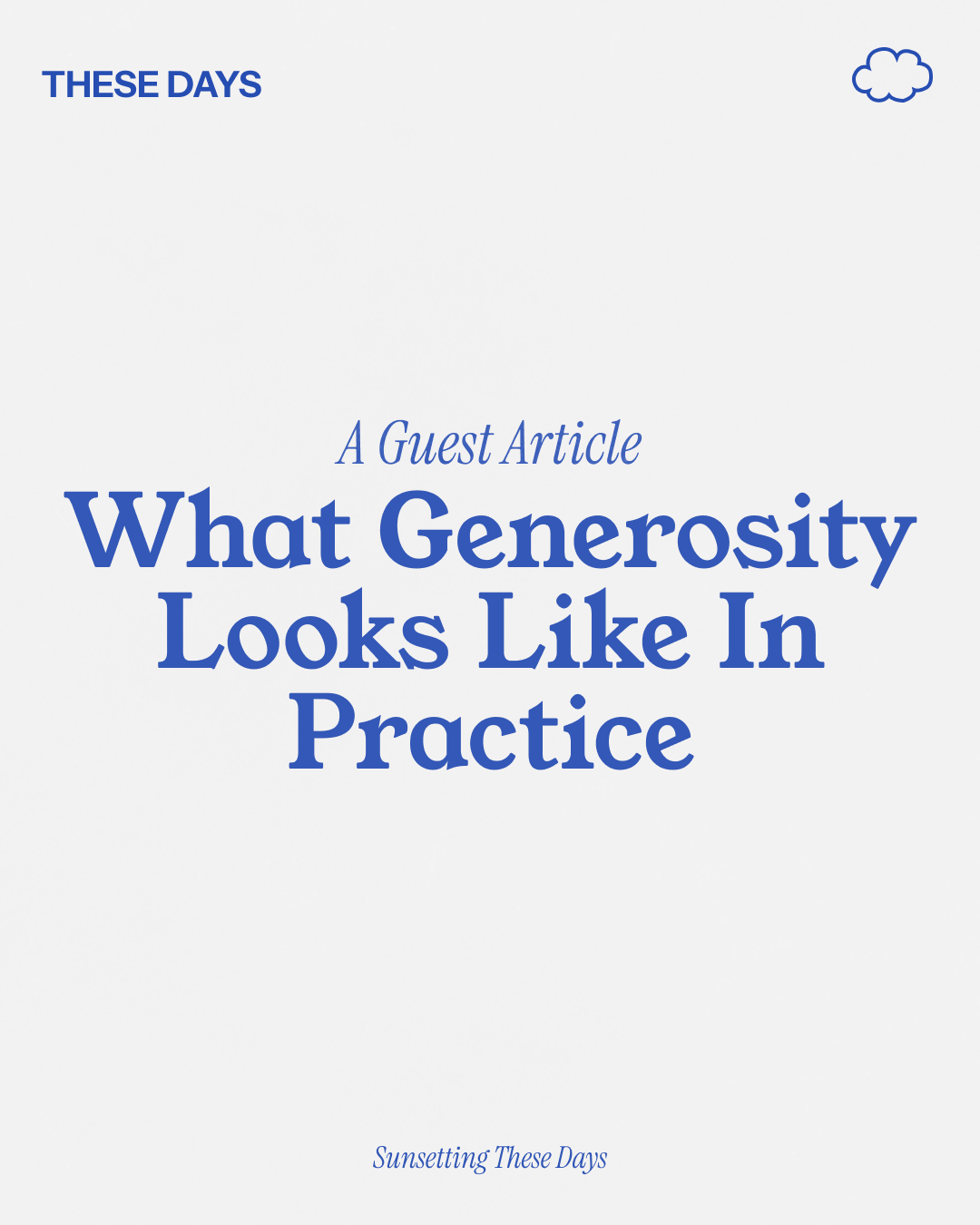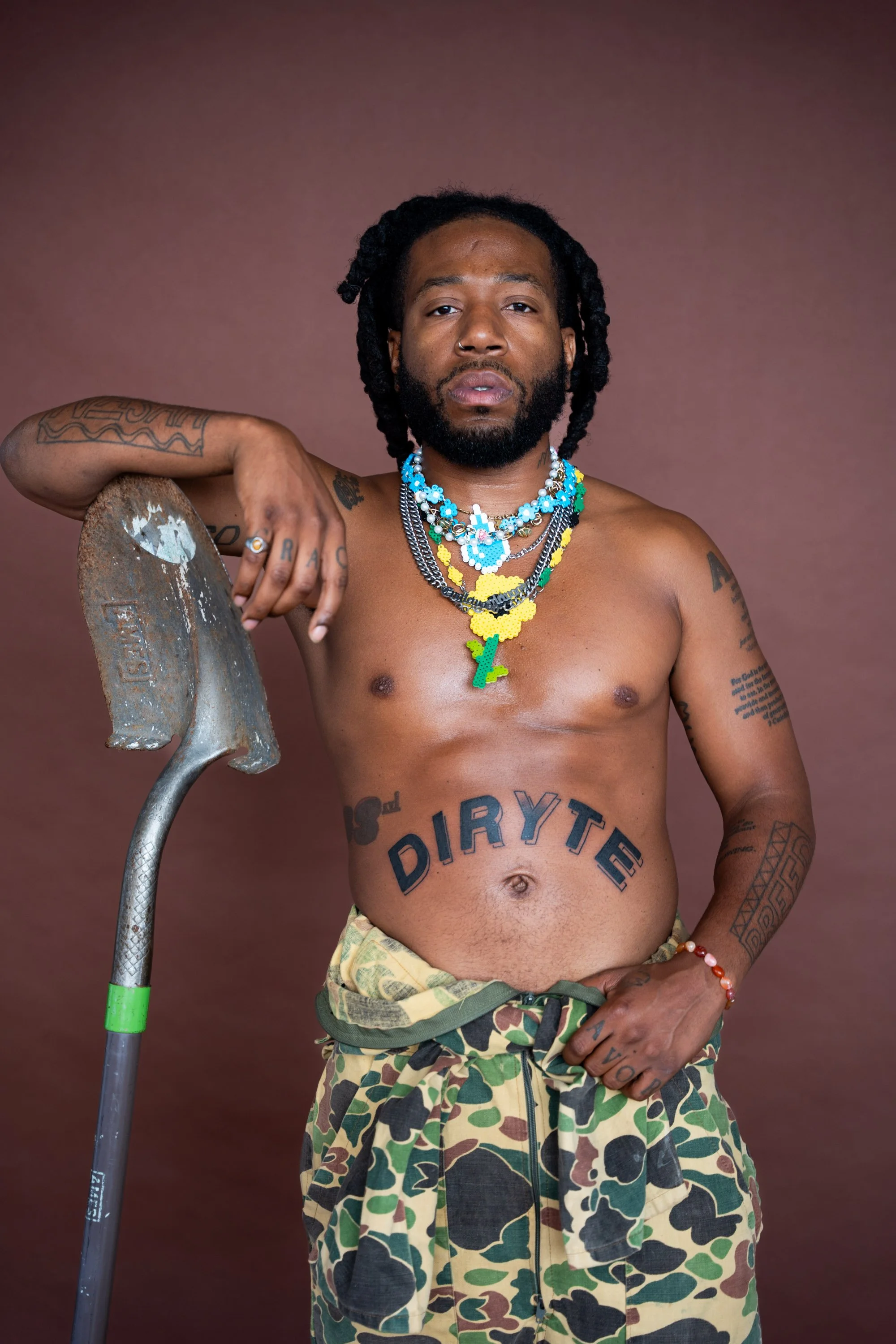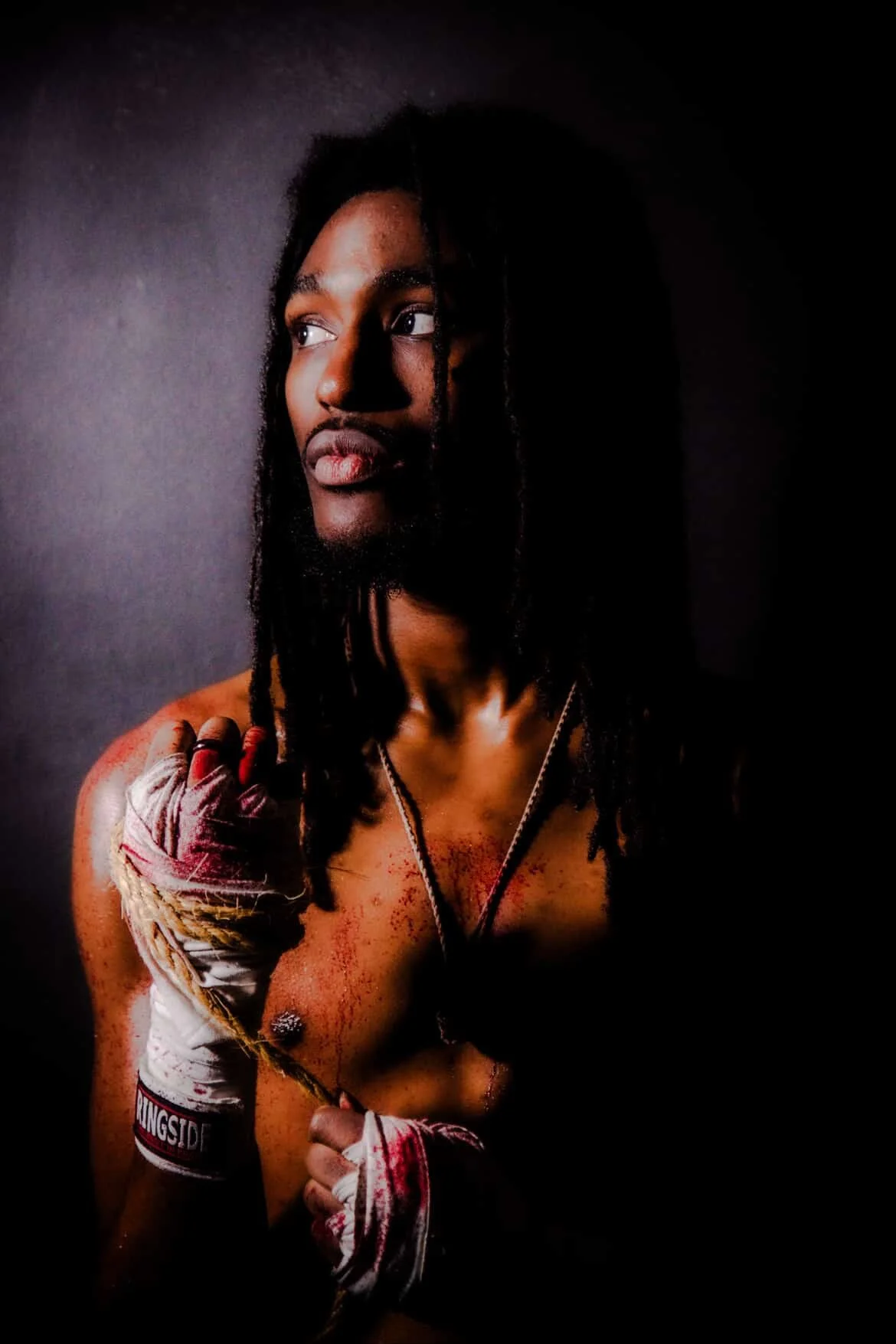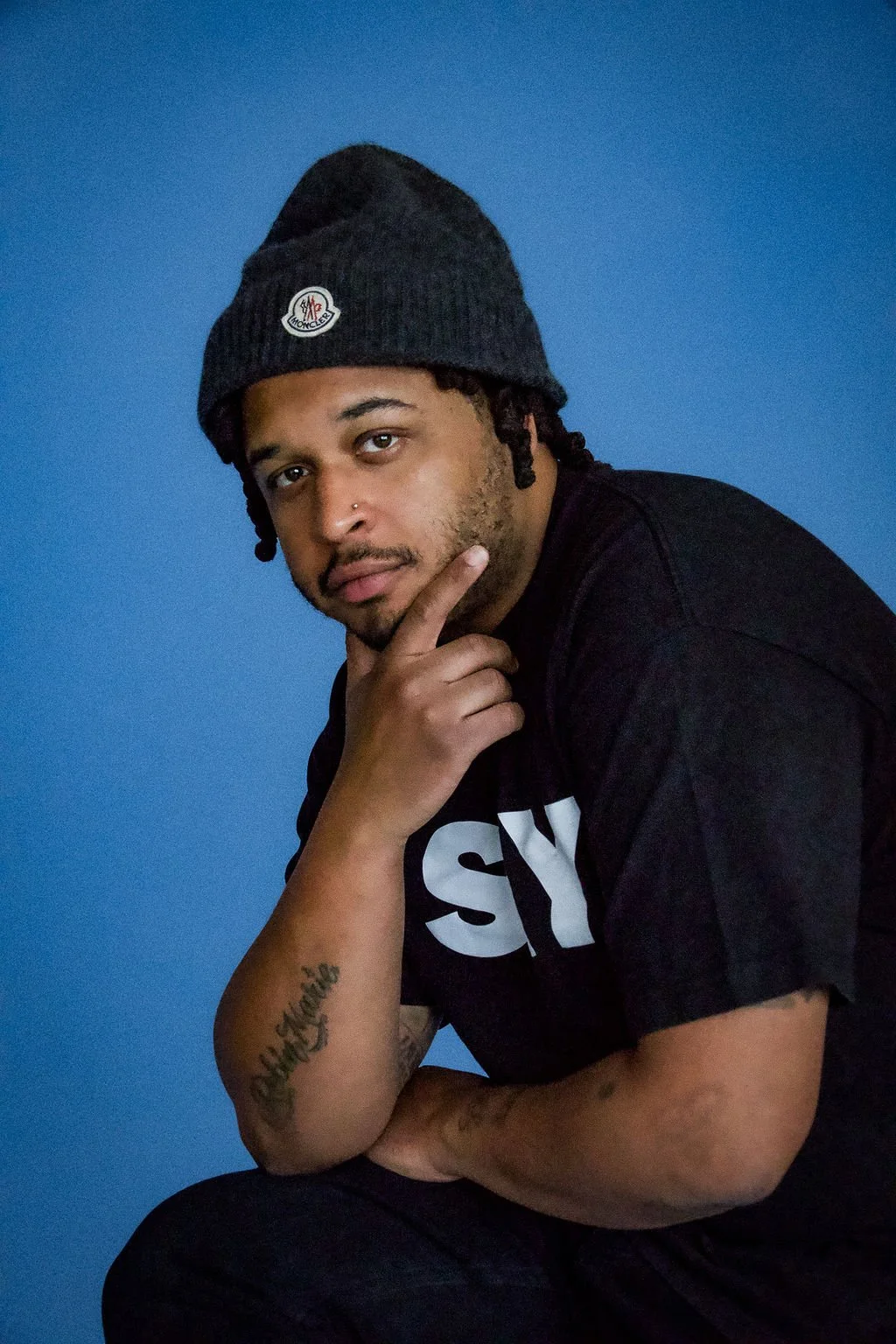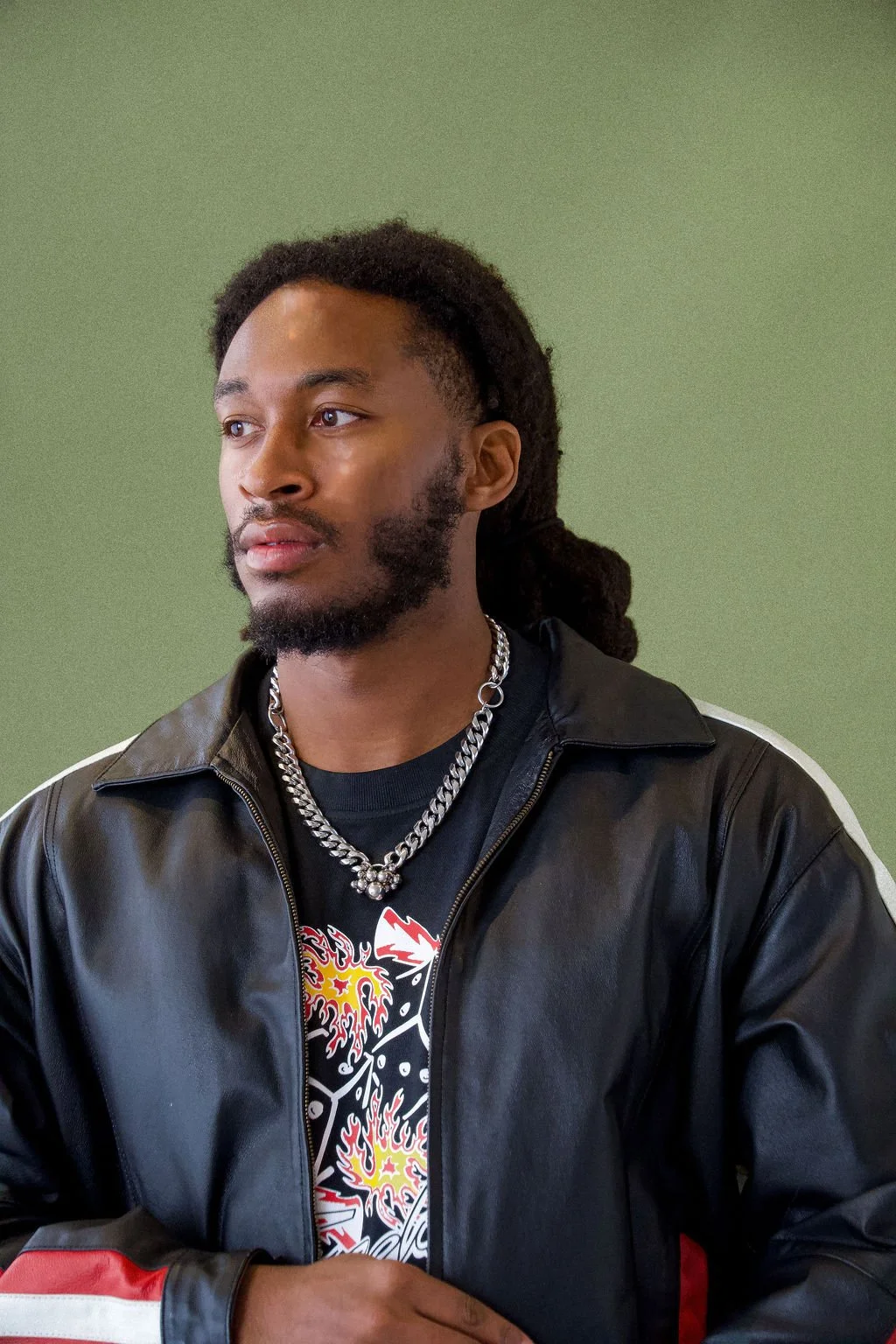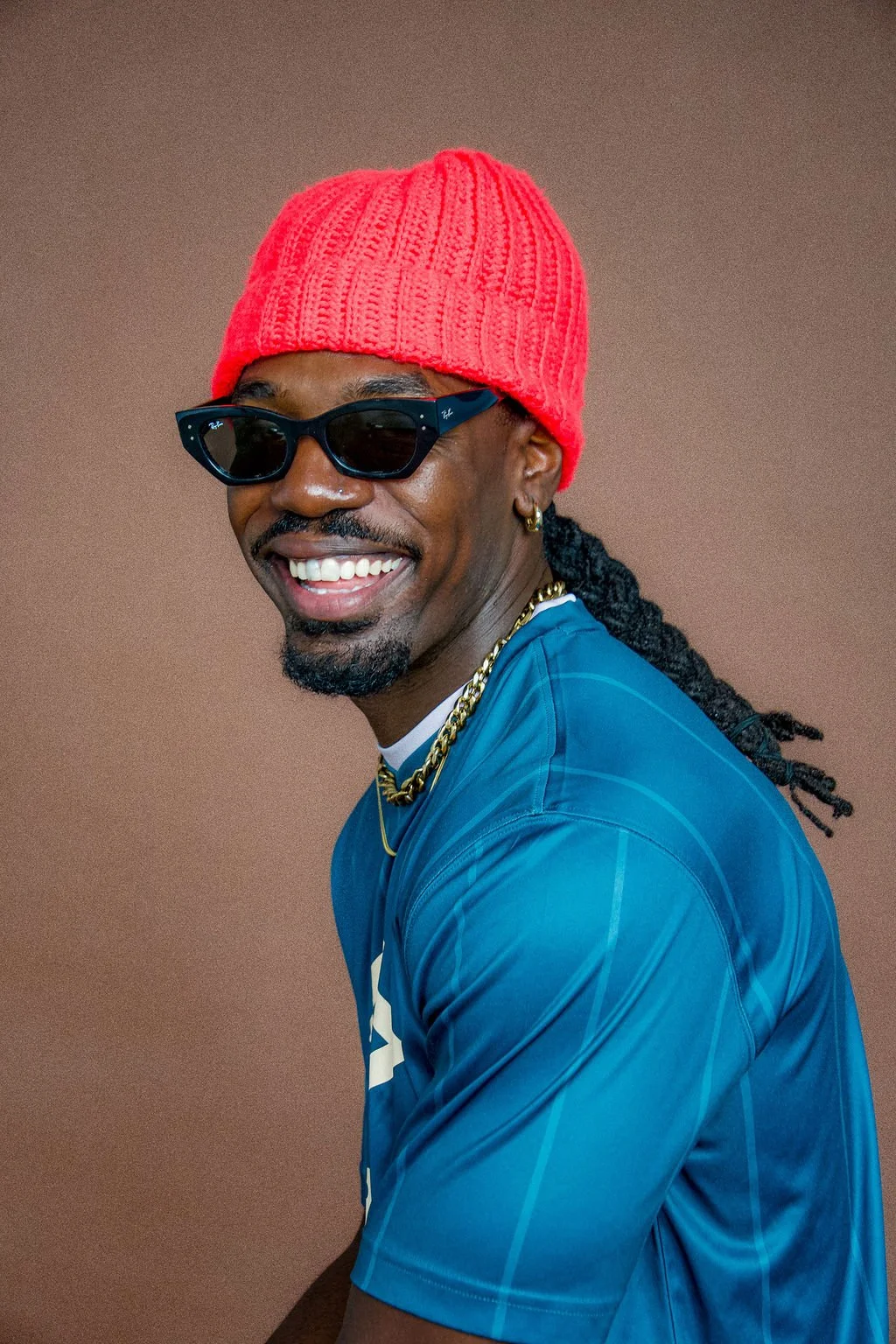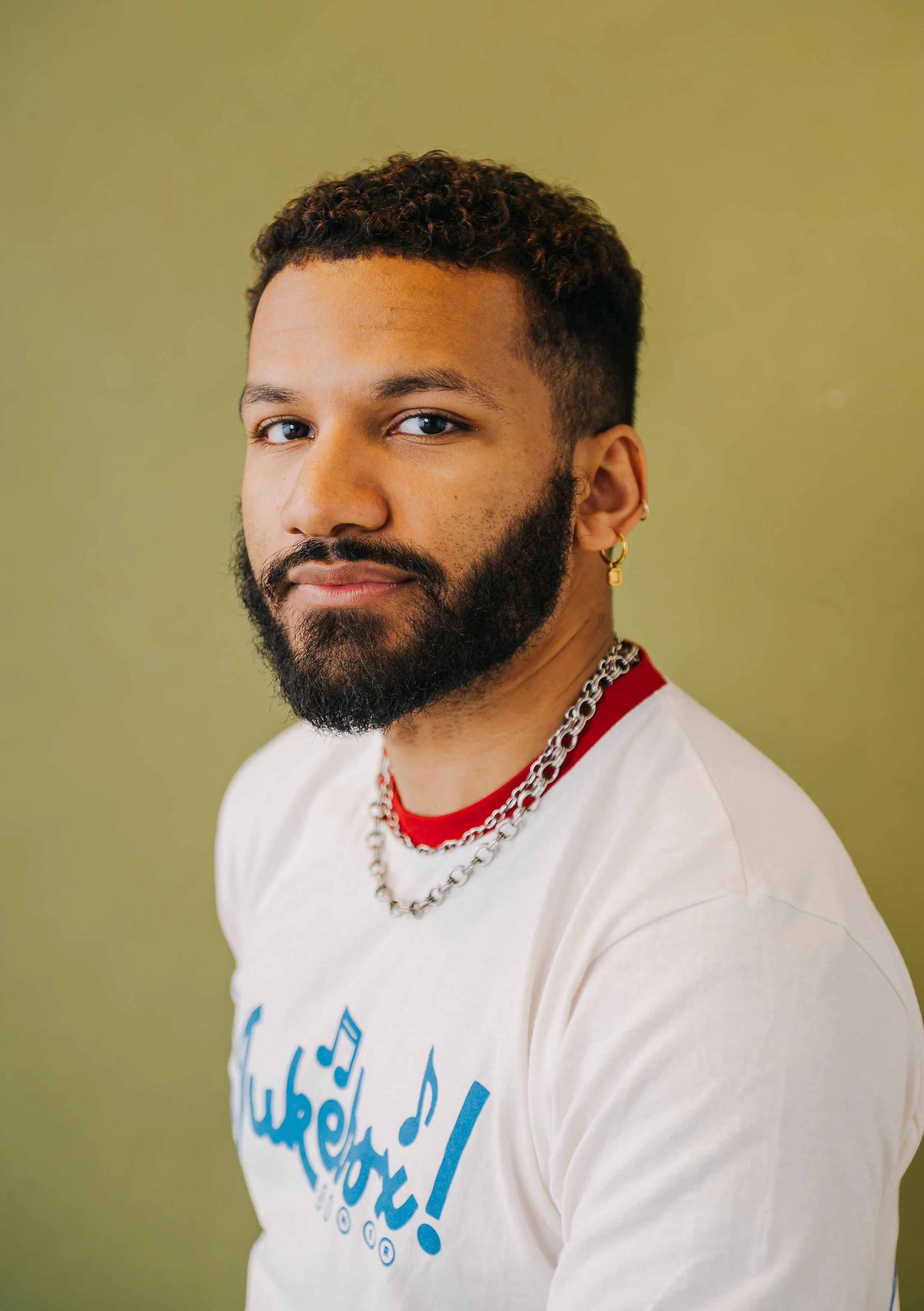In Conversation With DEEPER
Written by Nino Lenzini
2020 was looking to be Deeper’s year. In March the post-punk revival group released their sophomore album Auto-Pain and had a world tour in the books. On the band’s way to SXSW, everything changed. COVID-19 shut down the festival and sent the quartet back home to Chicago, totally fucking the push behind their new LP.
Luckily for Deeper, Auto-Pain speaks for itself as an incredibly catchy collection of songs despite the record’s heavy subject-matter exploring themes of depression and mental health. The album’s tracks balance chaotic bursts of dissonance by guitarists Nic Gohl and Drew McBride with the driving rhythms of drummer Shiraz Bhatti and bassist Kevin Fairbairn. Deeper is a band that relies heavily on clever interlocking parts, a product of the intense chemistry that the group developed while cutting their teeth in the city’s thriving underground DIY circuit. Auto-Pain is the result of years of sweaty basement shows and endless tours; a band that despite the loss of founding member Mike Clawson during the recording process, was as tight as ever.
I caught up with the Deeper boys over a Google Hang (a sign of the times) and we talked about the band’s writing process and plans for 2020, including their upcoming Audiotree STAGED performance. Check out the conversation below.
When did the band start playing together?
Nic: Me and Shiraz kinda had a project together… it’s a long story. It’s been a long time.
Kevin: We’re like a snowball of people, we keep pulling in more along the way.
Drew: I think it was January 2016 or maybe like December 2015 or something like that. Time flies. We definitely toured the summer of 2016 and 2017 before the first record came out. We’re getting to the point where it’s been long enough that we can’t really remember the timeline anymore.
Kevin: It used to be so easy to be like “oh yeah, that’s pre-Trump” but even that’s cloudy now.
Shiraz: Oh my gosh! You definitely joined pre-Trump, Drew.
How do you approach the writing process, when so much of what makes your songs work is rooted in interlocking parts?
Drew: I think the eloquent way would be to call it “organic,” but we’re really just throwing shit at the wall to see what sticks. There’s a lot of that. It’s like ok, that thing is actually pretty cool, let’s see if we can put it next to that thing. We keep layering things together until we have a song.
Nic: I think the real goal is to not play a chord, but have the two guitars together make that chord. Typically how I’ll write a guitar line is by strumming out half of a formation and then have somebody else play the bass note over that but do it in a weird rhythm so you’re kinda playing out of sync but in sync with each other. We used to practice twice a week for a couple of hours each time and we would flesh out the songs together. Some of the songs we did on four-track cassettes, but the bulk of it was just the four of us fucking around.
Drew: There are voice memos on my phone of us jamming and it’ll be the same bit for 17 minutes and then at the end it’s like ok cool we have that idea. Then we focus on the next bit.
You guys had a pretty extensive tour planned for 2020. How have you guys adapted post-Corona?
Nic: We were in the first half of our U.S. tour when everything got canceled. We had a couple of tours planned. It was like four separate tours planned back to back.
Drew: We were supposed to do a support tour in Europe, come home. A support tour in the U.S.. Go back to Europe and do a headline tour. Come back to the U.S. and do a headline tour. But in the middle of the U.S. support tour, on the way to SXSW, everything got canceled.
Nic: We’re still trying to push the album. We were lucky enough to play the new record in front of people for a little bit, we had been on the road for 6 weeks prior to the shutdown. Since then we’ve been quarantining in Chicago, but we’re working on a bunch of shit. Each of us individually has a lot going on in their lives so this not touring constantly helps us get that going better than if you were on the road for four months straight. For putting out a record in the middle of this, we’re doing pretty good. I’m definitely working on a lot of stuff and we talk at least once or twice a week about going forward with everything. Maybe a new Deeper record out of this.
‘Auto-Pain’ came out on Fire Talk Records. How’d you guys get involved with them?
Shiraz: A lot of our homies are on Fire Talk like Dehd. Before Dehd was on Fire Talk there was this band Earring and we really liked the label through them. When we were about to release our first song, “Transmogrified,” Trevor (Trevor Peterson, Fire Talk’s owner) e-mailed us and wanted to do a one-song contract and see where it went. We’ve stuck with him since.
Nic: He’s always had our back since we started. It’s been really helpful to have that kind of person on your side.
Drew: Fire Talk’s been cool because when we were coming up in the DIY scene, they were releasing more experimental music and so as we started to get our bearings straight as to what we wanted the band to be, Trevor was also leveling up what he was doing. It kind of sucks with the way it all worked out with CoronaVirus because 2020 was the year of Fire Talk between the Dehd record, Pure X, and some other stuff that’s coming up.
How do you guys feel about being tagged as a post-punk group?
Nic: I mean I think we definitely sound like what people would coin as a post-punk band, but I think we don’t want to stop at that. We’ll try different things. Some people stop at a sound they like and I think we’re going to evolve with it so maybe it won’t sound like post-punk always. We all really like hip-hop. The way those records come together was very influential in how we wanted Auto-Pain to sound. We were really into how Kendrick Lamar’s records have a theme and skits that go in and out of it. How songs start and stop.
Drew: We were listening to [Kendrick Lamar’s] DAMN. so much while we were recording. Of course, there are some really good singles, but to understand the concept of the record you have to listen to it start to finish. That’s what we were trying to do with Auto-Pain, to make something that stands by itself as a whole record instead of just singles.
Q. Auto-Pain has some really interesting cover art. Can you breakdown the meaning behind the photograph and the symbols you used?
Drew: The image is of the old Prentice Women’s Hospital. That building has brutalist architecture and we’re really into that. The record is thematically pretty dark and because it talks so much about depression we thought it was cool to juxtapose the songs against images of these places of healing.
Shiraz: The text is in Urdu, it’s what’s spoken in Pakistan. It’s pretty similar to Hindi. I’m Native American, I’m Ojibwe, and Pakistani but never spent much time in Pakistan. My father and I didn’t have a good relationship for most of my life and as we were working on Auto-Pain my father and I started to reconcile. I went to Lahore for a month in the summer and fell in love with the culture over there. It says “Deeper” and “Auto-Pain” in Urdu but the word for pain that’s used is more of a mental pain. They have three or four different words for pain, and I thought it was a nice easter-egg for people who speak Urdu because a lot of the songs are centered on mental health. I wanted to show brown people like me who like post-punk that there’s a community there. When we’re playing shows it’s like 90% white and a lot of the people of color who are in the scene feel like they aren’t a part of it. I wanted to extend an arm out and show that there are brown people in the scene as well.
Flyer provided by Audiotree
Can you tell me a little bit about your upcoming show for Audiotree at Lincoln Hall? How did that come together? Is there going to be a live audience or is it a pure live stream? Are you excited for your first show since dropping Auto-Pain?
Drew: We are really excited. By this point in the year we were expecting to play over 120 shows, so it’s going to be great to get back on a stage and play live. There won’t be an audience, it’s just a live stream, so that will definitely be a new experience. I guess that’s the new normal, at least temporarily. I think musicians and listeners alike want any bit of normal they can get, so hopefully this reminds people how great live music is.
Wondering if you guys have any insights into how Corona has affected you as touring musicians, but also the city’s music scene as a whole? I don’t know if you saw the article claiming that 90% of Chicago’s independent music venues could close if there isn’t some kind of government intervention, but was wondering if you had any inside information on that. I believe that Lincoln Hall is one of those at-risk venues.
Drew: It’s a really dire situation nationally. The government’s botched approach to managing the pandemic has done irreparable damage to the arts. It will take years – maybe decades – to fully bounce back. We really encourage everyone to go to the National Independent Venue Association to get more information and write your representatives about this. Lincoln Hall is at-risk, but thankfully they have the Audiotree team capable of putting on really high quality streaming shows. This helps, but ultimately doesn’t come close to bringing in the revenue from being open regularly. They’re better off than many smaller (and bigger) venues that can’t put on streaming shows like this.
As we head into the fall we will probably see more beloved venues closing. Chicago venues are getting creative and we hope everyone will consider buying merch or attending live streams to help artists and venues through these hard times. Here’s a small list of places to support: The Empty Bottle, The Hideout, Sleeping Village, Lincoln Hall & Thalia Hall.




